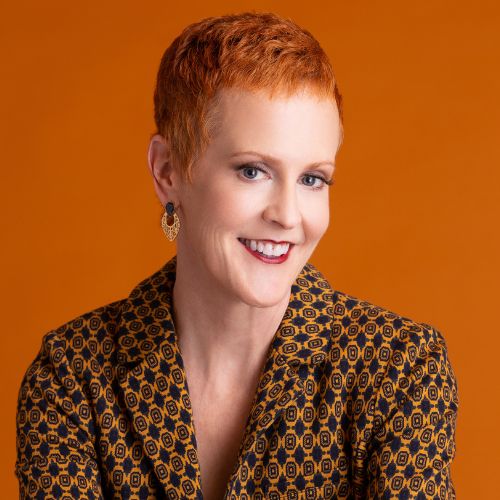Embarking on a career change is often portrayed as the search for happiness. You’re unhappy in your current job, and naturally, changing it should bring joy, right? Considering a career change is a significant step for many, embodying a quest for not just a new job, but a deeper fulfillment and alignment with personal values.
Rethinking the Basic Premise
The idea that a career change will directly result in happiness is enticing, yet it lacks the depth needed to make a profound difference. Your career is just one element; your relationships, health, leisure time, and personal growth are equally pivotal.
Analysis of “Will a Career Change Make Me Happy?”
The overarching sentiment of the question is rooted in finding a quick solution.
Limitations of This Question
Singularly associating happiness with career change is myopic. This tunnel vision can lead to successive job changes without attaining the sought-after satisfaction.
Introduction to More Effective Questions
To truly grasp what matters to us, we’ve got to dig deeper than just our job titles and paychecks; it’s about the big picture—our core values and long-term aspirations.
Understanding the Complexities of Job Satisfaction
Job satisfaction is multifaceted, influenced by various factors that interact uniquely with each individual.
What Influences Job Happiness?
External factors, such as salary and benefits, and internal factors, like the ‘fit’ between your skills, interests, and the job, play significant roles. However, even a perfect skill-set-job match won’t suffice if it doesn’t align with your values and sense of purpose.
The Role of Personal Values and Goals in Career Satisfaction
We all have intrinsic values and long-term goals that guide our lives. A career that contradicts these can lead to deep-seated dissatisfaction, even if it boasts external measures of success.
Common Misconceptions About Career and Happiness
Dispelling the myth that a high-paying job or a title-laden corporate ladder is the essential route to fulfillment, we’ll explore how the customization of a career around personal values often yields more meaningful results.
Key Questions When Considering a Career Change

Certain foundational questions should be at the forefront of your decision-making process if you’re contemplating a career change.
1. What Am I Seeking in a New Career? (Purpose, Passion, Skills)
Are you seeking a greater sense of purpose or the opportunity to indulge in a passion? Asking this question can help you determine if your happiness would improve from a career change or if you need to seek it elsewhere.
2. Why now? What is missing that you desire?
The timing of your career change is just as important as the change itself. Once you understand what is missing, you can determine why they are essential to you. It will also give you more insight into your motivation.
3. How Does This Career Align with My Long-Term Goals?
Your long-term career goals and aspirations must align with your personal life goals for a holistic satisfaction model.
4. What Are My Core Values, and How Can a Career Fulfill Them?
Determining your core values will shape the contours of a fulfilling career. Try to align your career with your values because it will lead to long-term satisfaction.
Assessing Personal and Professional Fit
Beyond your inner landscape, the environment in which you work is vital.
5. Am I Looking for a Career Change or a Company Change?
Sometimes, the problem isn’t the career but the company culture. Deciphering between these two is imperative for the most effective action.
6. What Kind of Work Environment Do I Thrive In?
Not all work environments are created equal. While some thrive where deadlines drive the pace, others need space to innovate and develop freely. It’s essential to pinpoint the work environment that suits you best. Maybe you thrive in a high-stakes environment. Maybe you do better in a deadline-driven enterprise. Or maybe you need less structure and more space where your imagination can soar.
7. How Important is Work-Life Balance and Flexibility to Me?
A balanced life makes us happy. Striking the right balance between your career and personal life is directly related to your sense of happiness. Career opportunities that meet your other goals but also give you the work-life balance should be the positions you hunt for.
Evaluating Risks and Preparedness

A career change often involves risk. Planning can mitigate these risks and provide a smoother transition. To plan effectively, you have to break down a career change into small, bite-size, incremental steps.
8. Am I Financially Prepared for a Transition?
Finances are understandably a significant concern when contemplating a career change. Creating a solid financial plan will clearly show your readiness to switch careers.
9. Do I Have the Necessary Skills or Training for This New Path?
An honest evaluation of your skills and the potential gap in training is a non-negotiable element of preparation.
10. How Will This Change Impact My Personal Life?
Changes in your professional life inevitably spill over into your personal life. Anticipating these ripples and ensuring alignment with your personal life goals is wise.
Exploring Growth and Learning Opportunities
A career should be a vehicle for growth and not just a destination.
11. What New Skills Can I Learn in This Career?
Identifying the skill sets you can acquire in a new career path can be exhilarating. It must align with the job and also your personal goal of continuous growth.
12. Are There Opportunities for Advancement and Growth?
Feeling stuck in a job that doesn’t grow can weigh you down. Look for your future career’s potential for climbing up the ladder and seizing fresh chances.
13. How Does This Career Support My Continuous Learning?
Focusing on learning is the secret to a successful and satisfying career. Ensure that your prospective career encourages and supports this ethos.
Practical Considerations and Planning
Beyond the head and the heart, switching is practical.
Research and Plan for a Successful Career Transition
Conducting thorough research and planning your career transition is akin to preparing for a marathon. It requires patience, detail-oriented work, and strategic thinking.
Building a Network in a New Industry
When making a career transition, networking is essential. Building connections in the new field can provide valuable insights and opportunities.
Creating a Realistic Timeline for Transition
A realistic timeline will keep you focused on the right track and provide benchmarks for your progress. Rushing into a transition can be as counterproductive as delaying it.
Emotional and Psychological Aspects

Emotional preparedness is often an overlooked component of a career change.
Coping with Uncertainty and Fear of Change
Change, even when welcomed, can be daunting. Developing coping strategies to handle uncertainty is crucial.
Seeking Support: When to Consult a Career Coach or Counselor
Recognizing when you need external support is a strength, not a weakness. Career coaches and career counselors can offer constructive advice and guidance to individuals seeking to progress professionally.
Managing Expectations and Dealing with Setbacks
Not every career change proceeds smoothly. Learning to manage your expectations and cope with setbacks will fortify your resilience.
Conclusion: Reflecting on the Right Questions
The path to career change is laden with questions, reflections, and sometimes doubts. By sincerely inquiring about your motivations, preferences, skills, and the reality of your desired career, you’ll be better prepared for the transition and the following journey. A coach can play a significant role in supporting you on this.
Summary of Key Insights and Takeaways
Taking time to ponder profound career transition questions can help us with our ambition to make a career change. Our professions are not just sources of income; they also represent who we are and have the power to enable us to live a life consistent with our innermost values and aspirations.
Encouraging a Holistic Approach to Career Decisions
A holistic approach to career decisions recognizes the interconnectedness of various life aspects and the need to maintain balance. Want to know more about successfully changing careers? Find out how here!


